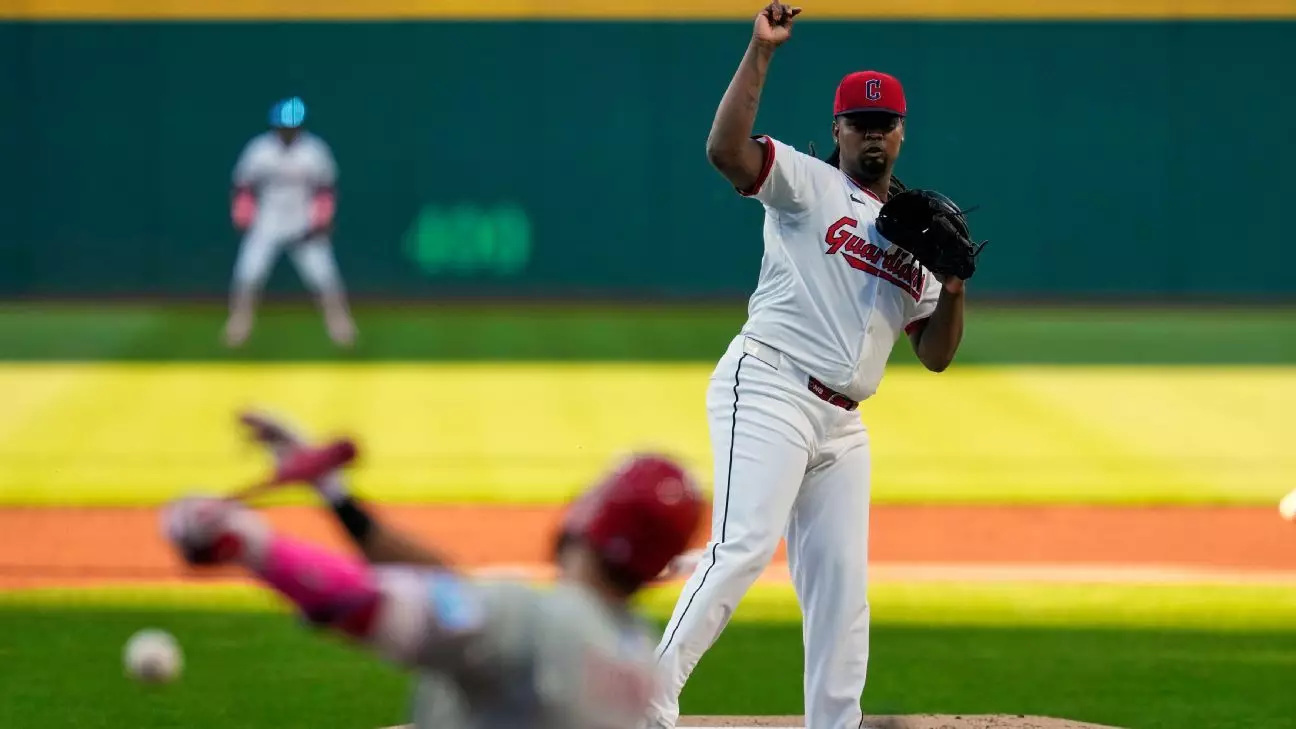In recent times, Major League Baseball finds itself embroiled in a scandal that not only tests its regulatory frameworks but also casts a long shadow over its reputation. The recent investigation into Cleveland Guardians pitcher Luis Ortiz illustrates a troubling trend: the pervasive influence of gambling and its potential to undermine fair play. While the league’s swift actions reflect a desire to maintain integrity, this incident reveals more about the vulnerabilities within baseball’s current oversight than about Ortiz himself. The sport, fettered by historic ideals of purity, now faces an uncomfortable truth—its connection to lucrative betting markets can threaten the very fabric of competitive fairness.
This investigation isn’t merely about a single player’s conduct; it’s symptomatic of a larger systemic issue. Sports betting has exploded in popularity, driven by technological innovation and aggressive marketing. Microbets, such as wagering on the outcome of a first pitch, are now commonplace, complicating efforts to monitor and enforce rules against corruption. Such bets, seemingly insignificant, can act as gateways to more extensive wagering schemes. The fact that Ortiz’s pitches, particularly in the early innings, attracted unusual betting activity raises profound concerns about how easily integrity can be compromised when financial incentives are positioned dangerously close to the game’s core.
Beyond the immediate ramifications, this case poses questions about the league’s preparedness. MLB’s recent history with gambling scandals demonstrates a pattern of reactive measures rather than proactive prevention. The suspension of umpire Pat Hoberg for sharing betting accounts and the lifetime ban of Tucupita Marcano for near 400 bets highlight a league that struggles to define its boundaries in a landscape increasingly entangled with betting interests. Ortiz’s case may be a harbinger of more widespread issues if the sport fails to implement robust, transparent safeguards. As fans and stakeholders watch closely, the league’s response will either reinforce trust or precipitate a crisis of confidence.
The Risks of Complacency and the Need for Vigilance
The situation with Luis Ortiz serves as a stark reminder of the perilous line sports leagues walk in balancing entertainment, commercial interests, and integrity. Betting on early game plays, like the first pitch, might appear trivial on the surface, yet it reveals a vulnerability: the possibility that minor bets can influence or be used to mask larger corruption schemes. The fact that betting alerts were specifically triggered by pitches outside the strike zone highlights how minute anomalies can have outsized consequences—if exploited.
From a broader perspective, this investigation reveals the urgent need for a paradigm shift in how leagues supervise and regulate betting activities. Current measures seem inadequate in detecting and deterring insider attempts to manipulate outcomes subtly. The league’s decision to place Ortiz on non-disciplinary paid leave, pending an investigation, is a cautious but reactive step. It fails, however, to address the root issue: the inherent conflict between a sport eager to monetize every aspect of the game and its responsibility to preserve integrity.
It’s also crucial to recognize that baseball’s historical aversion to gambling scandals is rooted in the sport’s desire for authenticity and virtue. But in an era where gambling is legally and culturally embedded into daily life, that aversion has become a liability. The league’s challenge is to develop a proactive, transparent framework that can distinguish innocent betting from malicious interference. Without such measures, the sport risks becoming merely another arena for clandestine betting networks that can manipulate outcomes, eroding fan trust and tarnishing the game’s legacy.
Center-Left Perspectives and the Future of Fair Play
From a center-left liberal stance, there is a clear responsibility for Major League Baseball to champion transparency, fairness, and ethical standards, especially in a landscape saturated with commercial interests. The league’s current predicament underscores the importance of regulatory oversight that prioritizes public trust over short-term profits. The integrity of sports—particularly baseball, which is woven into the cultural identity of many communities—must take precedence over the thrill of betting or the lure of lucrative sponsorship deals tied to gambling.
Promoting accountability and stronger safeguards is essential. MLB should leverage technology, such as real-time analytics and AI-driven monitoring, to detect irregular patterns more effectively. Additionally, fostering a culture of integrity that discourages players and officials from engaging in risky betting behaviors is vital. Such initiatives would align with progressive values that emphasize fairness, honesty, and community trust.
In the end, this controversy shouldn’t be dismissed merely as an isolated incident but seen as a crucial wake-up call. The league’s future depends on its ability to adapt to new realities—recognizing that the integrity of the game is non-negotiable. Only through a firm commitment to ethical standards, transparent oversight, and unwavering respect for the sport’s foundational principles can baseball navigate the murky waters of modern betting culture and restore faith in its timeless pursuit of excellence.


Leave a Reply